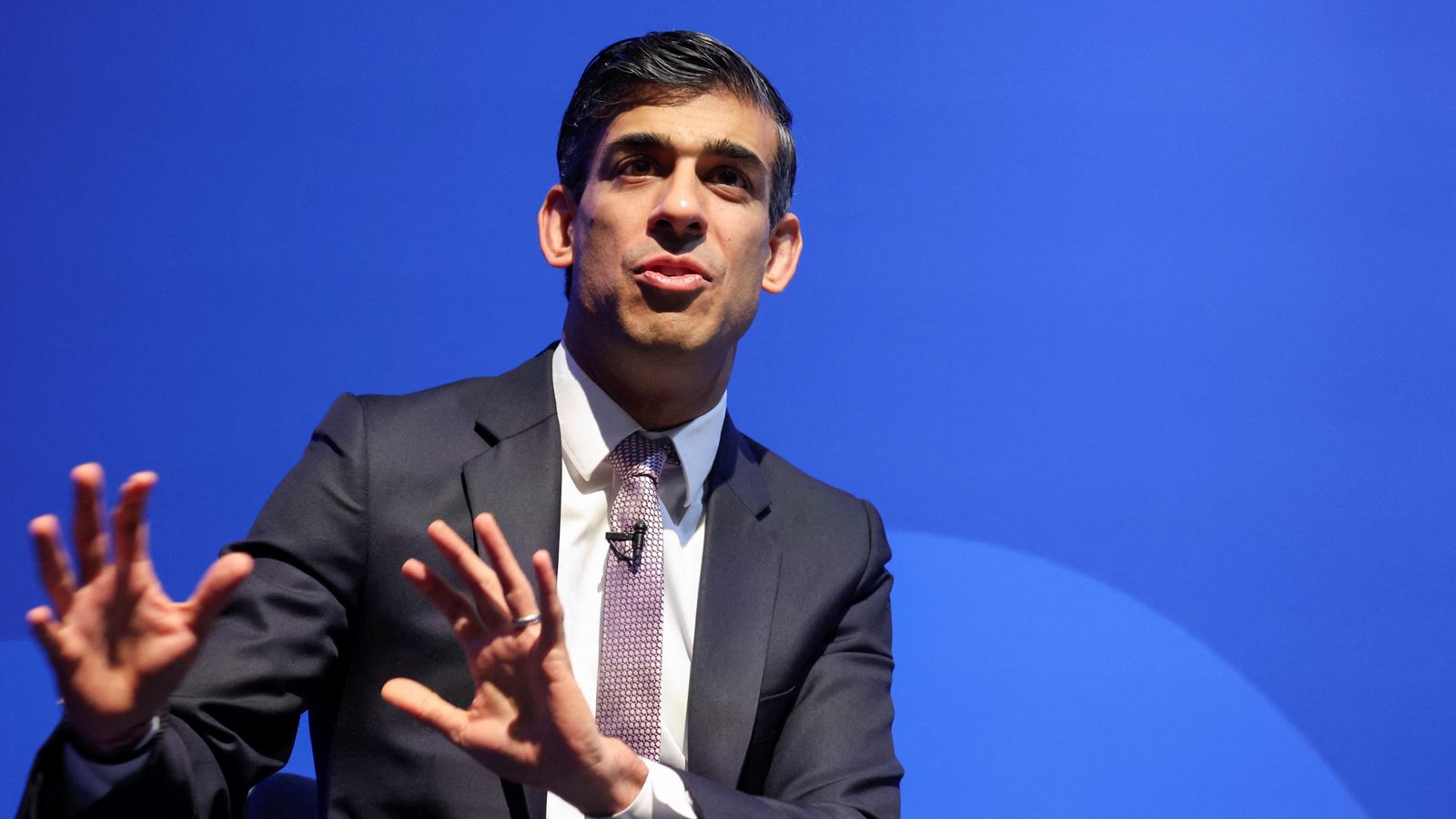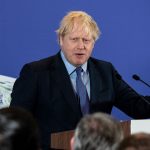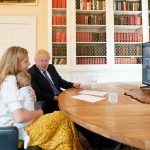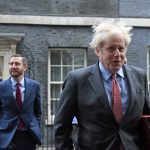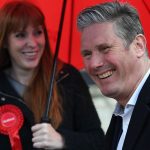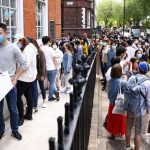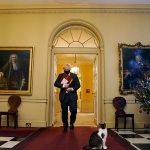In the refurbished splendour of the Blackpool Winter Gardens, the Conservative Party is consciously attempting to press rewind to an earlier, easier era.
In their first conference visit to Lancashire since 2006, the programme and the conversation seeks to create an oasis where politics sounds much more like it did in an age before the rolling crises we have become used to.
Conservative Party chairman Oliver Dowden is reviving campaigning strategies used in the 2015 Tory general election campaign and announced the start of a two year campaign starting now.
Please use Chrome browser for a more accessible video player
“The privet hedges of suburbia are the privet hedges of a free people,” Mr Dowden declared to a non-plussed hall.
The discussion on the main stage and fringe is about tax, spend and delivery.
In the conference hall, Rishi Sunak is making jokes about his dog being bigger than the Number 10 dog, which the more creative members of the audience might have accidentally misread as a competitive metaphor.
Yet six weeks ago, many senior figures in this party were actively discussing ousting Boris Johnson as prime minister over the rule breaking in Downing Street at the height of the coronavirus pandemic, and the subsequent attempt to cover it up.
Vladimir Putin: Russian leader commanding Ukraine war sees himself as new Stalin, says Boris Johnson
Crackdown on ‘lawfare’ from oligarchs and super-rich promised by Boris Johnson
Nazanin Zaghari-Ratcliffe returns home
Today, Brexit opportunities minister Jacob Rees-Mogg said that the matters still under investigation by police were “fluff” given events in Ukraine and the cost of living challenge ahead, gambling the strength of public opinion on the issue has dissolved.
Transport Secretary Grant Shapps also declared the world had moved on.
Ahead of a police decision about fixed penalty notices, this still remains wishful thinking rather than concrete political fact, although the short term prospects for the PM – a Houdini of modern politics – have undeniably improved.
The longer term political fallout remains misty even if, as some in Whitehall believe, Mr Johnson escapes police sanction but members of his family and people at the top of the civil service do not and get fined.
Politics is never static, however, and there is only partial awareness at this conference of the enormous challenge to come.
The chancellor referenced it briefly in his question and answer session when he said he had “sympathy for what people are going through” with the pressures caused by rising prices.
The situation, he stressed, was “global”.
This is only true up to a point.
Please use Chrome browser for a more accessible video player
While there is little the government can do to control energy, petrol and food prices in the short term, it is consciously layering more pain on top with the national insurance rise coming at the start of the next financial year, alongside higher council tax and freezing the income tax personal allowance.
These decisions were all taken in an earlier era – with the national insurance hike agreed in September when the current cost of living crisis on the existing scale had not begun to be conceived.
The arguments in favour have not been updated, despite the prospect of inflation topping 8% and a huge tax windfall in the early months of the year making it financially possible to delay the introduction for 12 months while the situation settles.
“The chancellor’s mind is made up”, one cabinet minister told me “and at this stage campaigning against the rise won’t make it happen.”
But dissent isn’t hard to find.
When I asked Mr Rees-Mogg to justify the national insurance rise in the revised, tougher economic circumstances, he sidestepped the question, declaring it a matter for the chancellor and adding that “Conservatives need to get back to cutting tax.”
Follow the Daily podcast on Apple Podcasts, Google Podcasts, Spotify, Spreaker
Next week’s financial Spring Statement may not be the moment this tax hike is reversed, though some believe the rise should and will be top of the list the chancellor should undo at the end of the Parliament.
However, as he showed with the autumn changes to universal credit, Mr Sunak sometimes has to dig very deep in his pockets to find other ways to offset painful decisions he made previously but have proved politically perilous.
Pressed on what to do about the national insurance rise, one ally of Mr Johnson replied archly: “I wonder what rabbits the chancellor will have next week.”
Some in the party have realised they must be careful not to shoulder the entire blame for the cost of living crisis as it takes centre stage this Spring.
